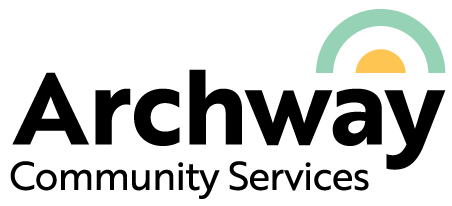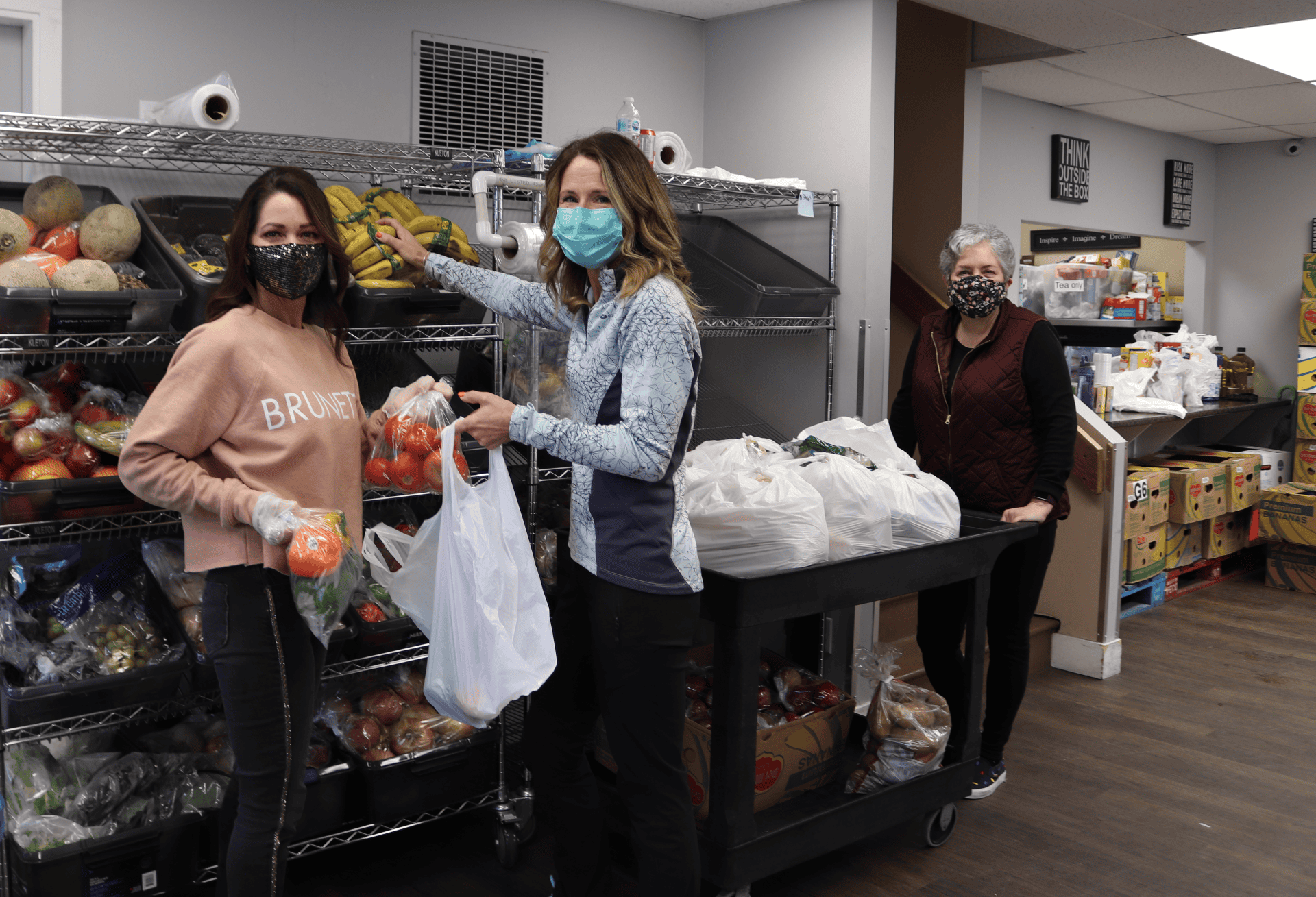
It has been just over a year since COVID-19 began seriously impacting day-to-day life in Canada. Since the beginning of the pandemic, Archway has been adapting services to keep clients and staff safe and comply with changing safety recommendations.
As we mark the one-year anniversary, we’ve gathered a snapshot of the effects of COVID-19 on our clients, the changes that the programs have undergone, and how we plan to move forward after learning from this year.
Throughout the pandemic, Archway remained open with modified services. Programs were quick to transition to virtual service offerings while essential programs kept delivering in-person service with the appropriate precautions.
Recycling
One essential service, our Abbotsford Mission Recycling program provides recycling for over 40,000 households in Abbotsford and Mission. Staff initially saw huge increases in the amount of recycling due to more people eating at home or getting take-out. Lately the volume of recyclables has levelled to a new, slightly increased normal. With over 50 staff daily between two shifts, workers have had to stay very diligent in following safety and cleaning protocols.
“The longer COVID goes on, the more youth we see reach out for mental health supports.”
Food Bank
During the pandemic, Archway Food Bank saw an increase in people accessing programs that had a delivery option. Both Starfish Pack and Home Delivery saw huge increases, whereas, in-person pick ups decreased at first. After conducting a phone survey, staff learned one of the major reasons was because people were afraid to leave their homes.
In response the Food Bank had reconfigured distribution centres to maintain physical distancing, increased the number of satellite services in various neighbourhoods, and expanded home delivery services, even offering contactless delivery as an option.
Prior to the pandemic, the home delivery program would deliver food to 30 to 40 households in the community. Now a year later, “we’re sitting in the ballpark of about 113 and we’re looking to expand that to 240,” said Nick Johnson, Operations Supervisor. Reflecting back he shared, “the need of the community was only highlighted during COVID-19.”
As people became used to the restrictions and comfortable with the pick-up conditions, the in-person pick ups increased. More people accessed food in November and December than in previous years.
To improve safety for staff and clients, staff bring food outside to clients rather than them coming directly into the Food Bank. However, this created a new obstacle as people now needed to wait outside to have their orders taken. To make the wait more comfortable, a ticket number system was put into place so people had the option of waiting inside their cars.
For clients without cars, waiting for service outside was difficult during winter. The Food Bank used funding to buy umbrellas, outdoor heaters, and gazebo-style tents to keep clients out of the elements.
Normally when clients come into the Food Bank buildin, they can choose between food options and restoring this ability to shop for themselves is a dignity the Food Bank hopes to re-establish this year with the roll-out of vaccinations. They are regularly thinking of ways to increase access to food in a safe way for all while following provincial health orders.
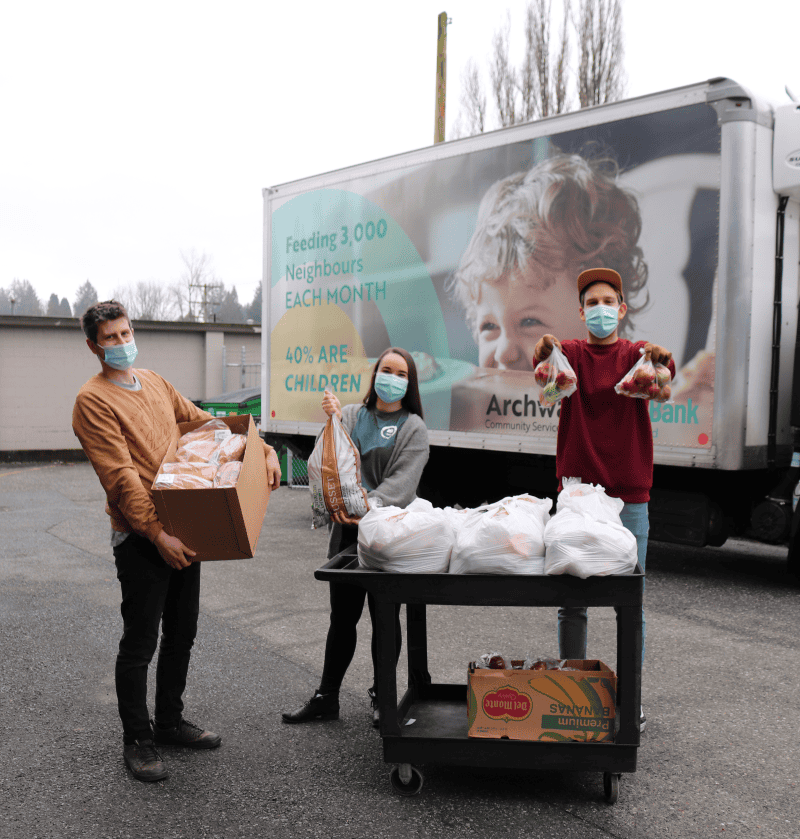
Food Bank Staff with donated food in February 2021.
Foundry – Youth Health Centre
During the early days of COVID-19, Foundry shifted its counselling and peer support services to online or phone sessions. They were a part of Foundry Central’s new, province-wide virtual mental health counselling initiative. Although most clients were seen virtually, the Abbotsford Youth Health Clinic remained open for in-person visits on an appointment basis to provide primary health care with enhanced safety measures in place.
After making the transition to online services, Foundry was hoping that youth would be more comfortable with virtual medical and counselling visits. However this was not the case so they resumed walk-in services in October 2020 which and 95% of services are now delivered in-person.
COVID-19 has often exacerbated mental health concerns for youth, especially if mental health concerns were present before the pandemic.
“The longer COVID goes on, the more youth we see reach out for mental health supports,” says Nicole Clarke, a Youth and Family Empowerment Coordinator.
Foundry staff has had to adapt to many changes during the pandemic to continue to meet COVID-19 provincial guidelines and the needs of their diverse clientele. Moving forward, Foundry will continue to offer a hybrid of in-person and virtual services to reach more youth in the community.
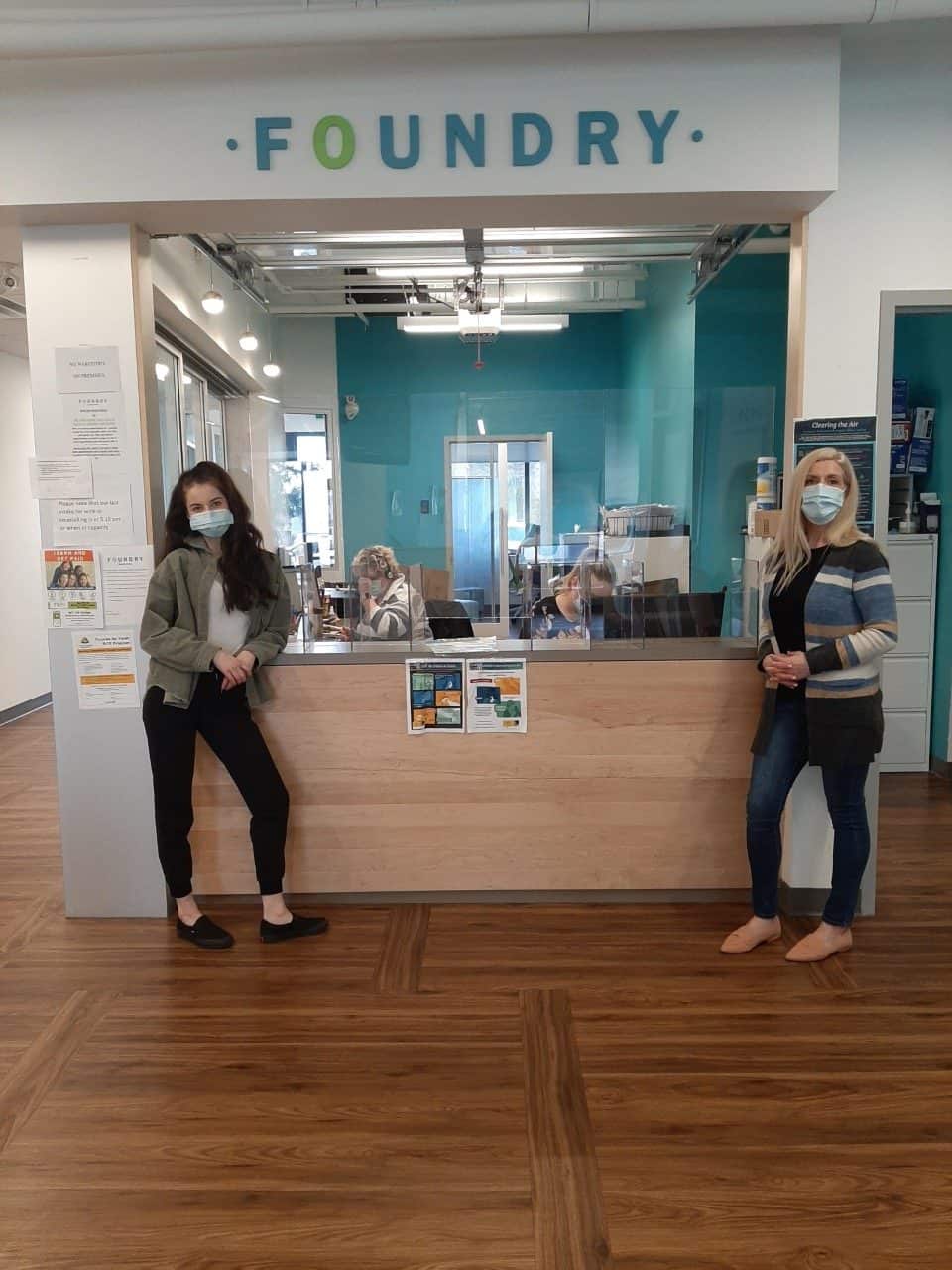
Seniors
A year of a global pandemic has further pushed many to the margins of society and increased the isolation of seniors who notoriously lack access to, or comfortability with, technology. In response to seeing increased levels of social isolation amongst seniors, our Seniors department quickly launched the Mobile Seniors Outreach – a program designed to support local seniors during the pandemic with practical and social services like friendly visits, access to prescription medications and grocery shopping. We also partnered with United Way to provide the Safe Seniors, Strong Communities service for those who called BC211.
Many of the clients we serve in the Seniors department are unfamiliar or uncomfortable with technology. As life has moved increasingly online throughout the pandemic, some seniors struggled to connect with their friends and family using digital devices, making them feel socially isolated. They’re also unable to access all community services since some programs are offering services through video conferencing.
The Better at Home Coordinator, Karen Kenny shares that these seniors have many barriers keeping them from technology such as fear of not knowing enough about technology, financial barriers, or having no interest. COVID-19 has only highlighted the digital divide, and seniors devoid of technology are slipping through the cracks.
Our senior services are committed to moving forward in a creative manner to reach all seniors.
Since these seniors are comfortable with telephone and mail communication, staff have transitioned from in-person social visits to telephone chats. They have also began mailing monthly community resources and brochures and recently began offering “book bags.” Seniors register through the phone for this community book sharing service and get a bag of books or puzzles delivered to them, giving them a sense of connection to their community.
Better at Home will continue with the friendly phone calls, grocery shopping, and other modified services but hopes to have in-person visits and services more frequently when provincial health orders allow it.
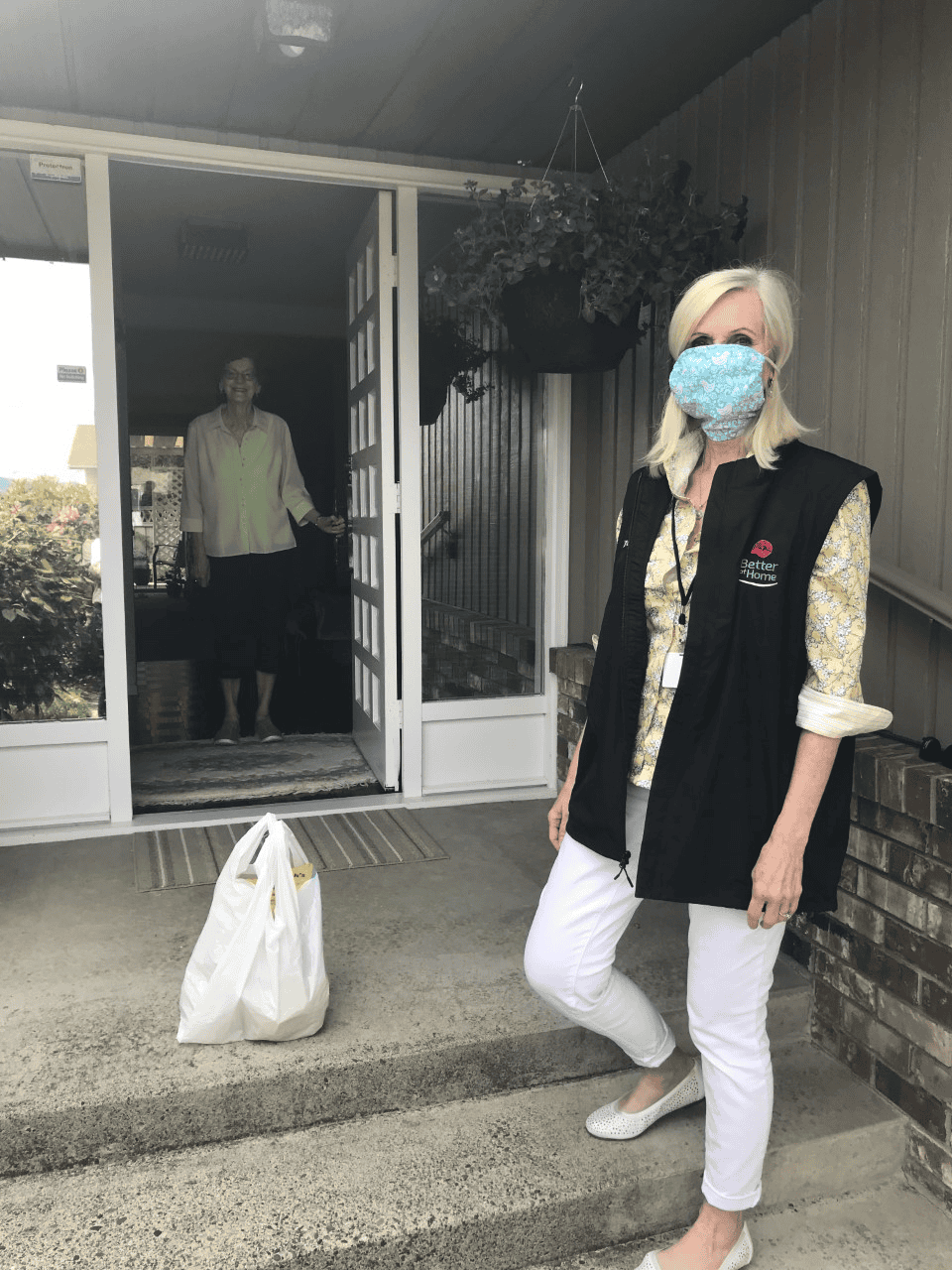
STRIDE for Older Workers
For older adults in our employment skills training program, STRIDE, we quickly transitioned to an entirely online platform for those comfortable with technology, while maintaining physically distant in-person sessions for people with barriers to accessing online learning.
The STRIDE program helps individuals aged 55+ gain new employment skills applicable to the modern labour market. During the pandemic, the program continued to conduct interviews with clients, offer career counselling and needs assessments by telephone, email, and video conferencing.
While these measures have helped to ensure efficient service delivery, the demographic they serve continues to struggle with feelings of isolation and lack of technological savviness to access and secure a job in today’s labour market. Fortunately, funding for computer training is now available for anyone who registers with STRIDE between now and the end of March 2021. In an additional measure to increase access to computers, laptops can be loaned to STRIDE clients.
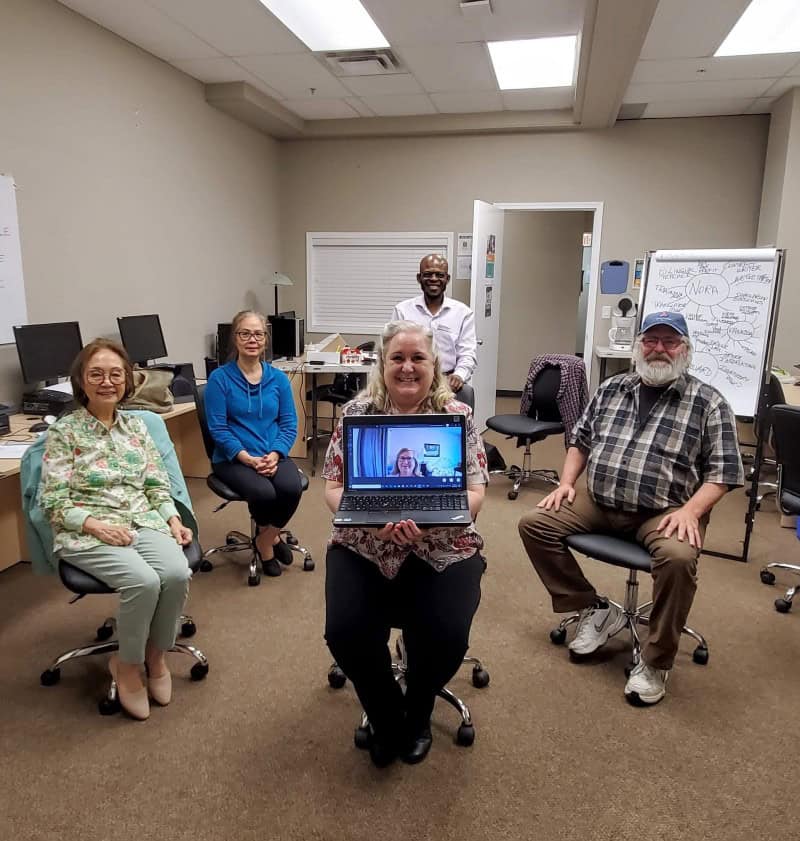
Newcomers
The Language Instruction for Newcomers to Canada (LINC) program went from in-person learning to taking their classrooms online for the first time. Students reported that they were happy to keep learning, received a sense of community during uncertain times, and were proud of their new digital skills. LINC classes also served as a great way to understand the new pandemic language such as “CERB,” “social distancing,” “elbow-bump,” and “flatten the curve.”
Some newcomers still struggle with language or technological barriers and “are challenged when they have to call various institutions (IRCC, Service Canada, Revenue Canada, Vital Statistics, etc.),” says Inder Singh, an Archway Settlement Worker.
“We will be adding technological literacy as a part of our services,” says Inder, noting that Settlement Services “is considering a hybrid model to accommodate clients who are still struggling with online technology” as the pandemic continues on.
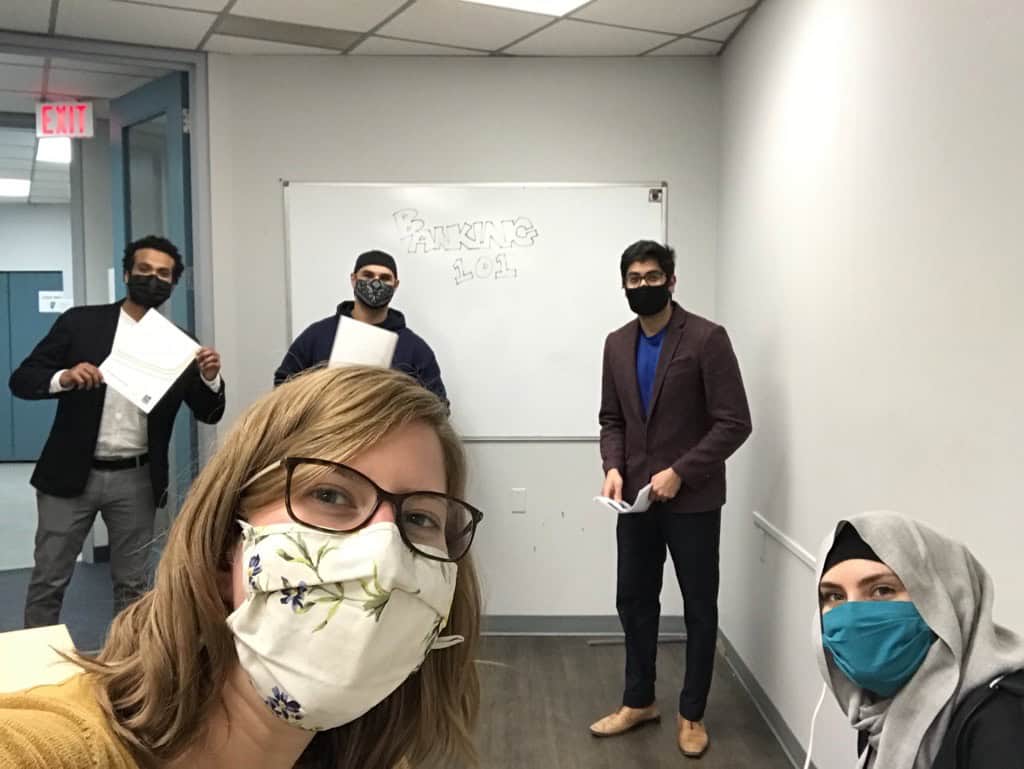
Fundraising Events
With large gatherings being banned since the early days of COVID-19, many fundraising events had to be cancelled or re-imagined. In 2020, our Board had to make the tough call to cancel the annual Jake Virtanen Charity Golf Tournament, which raised over $50,000 the year before.
Organizers are planning for a modified golf tournament in June 2021. However, whether it can run will ultimately depend on the COVID-19 guidelines in place at the time. The 2021 Jake Virtanen Charity Golf Tournament currently plans to include a full 18- hole course with a staggered start, virtual auction and more. The Golf Committee has already managed to secure a number of sponsors for the June 2021 tournament.
The Toys for Tots fundraiser in November 2020 was planned as a drive–thru event with entertainment outside. Unfortunately, it had to be cancelled three days before due to heightened restrictions. Thanks to the community and sponsors that rallied, over 1800 toys were still donated (matching that of last year’s) and over $40,000 was raised.
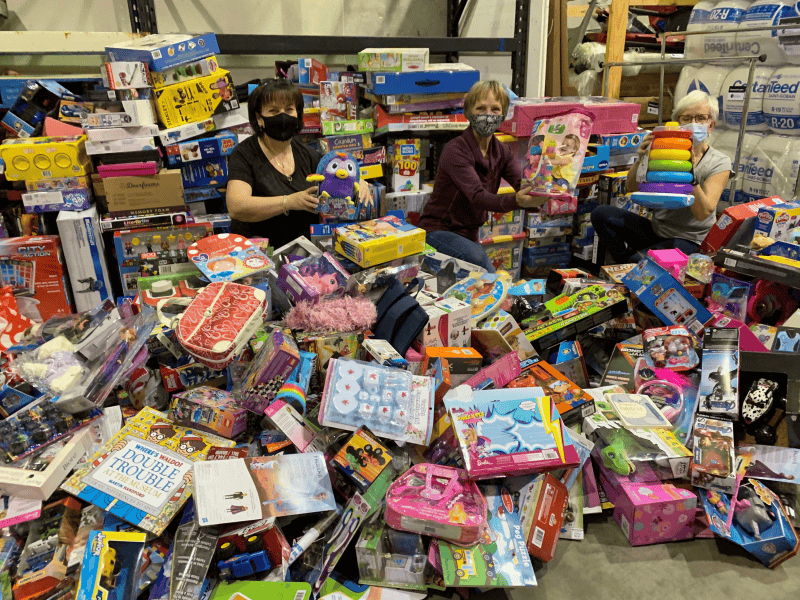
Conclusion
Despite the many setbacks and unpredictability of 2020, our staff, clients, donors funders worked together to come up with creative solutions and continue meeting the needs of our community.
We are proud of our clients and staff who have shown so much resilience, dedication, and compassion during this trying time. We continue to learn new lessons from the COVID-19 pandemic and will adapt our services as needed while strategizing about how to continue meeting emerging needs.
